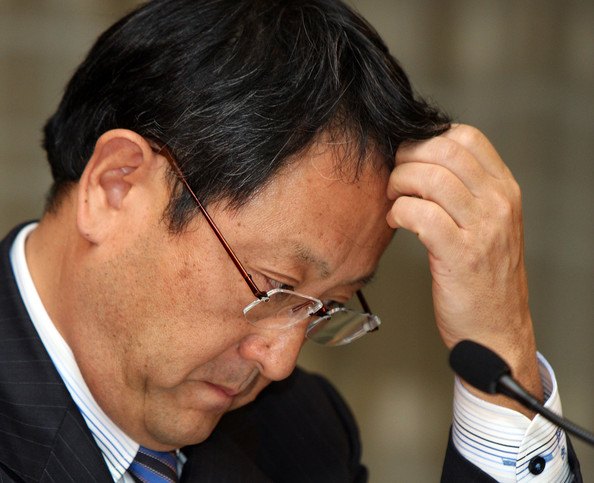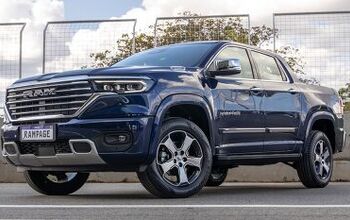Akio Toyoda's Prepared Statement
Thank you Chairman Towns.
I am Akio Toyoda of Toyota Motor Corporation. I would first like to state that I love cars as much as anyone, and I love Toyota as much as anyone. I take the utmost pleasure in offering vehicles that our customers love, and I know that Toyota’s 200,000 team members, dealers, and suppliers across America feel the same way. However, in the past few months, our customers have started to feel uncertain about the safety of Toyota’s vehicles, and I take full responsibility for that. Today, I would like to explain to the American people, as well as our customers in the U.S. and around the world, how seriously Toyota takes the quality and safety of its vehicles. I would like to express my appreciation to Chairman Towns and Ranking Member Issa, as well as the members of the House Oversight and Government Reform Committee, for giving me this opportunity to express my thoughts today.
I would like to focus my comments on three topics – Toyota’s basic philosophy regarding quality control, the cause of the recalls, and how we will manage quality control going forward.
First, I want to discuss the philosophy of Toyota’s quality control. I myself, as well as Toyota, am not perfect. At times, we do find defects. But in such situations, we always stop, strive to understand the problem, and make changes to improve further. In the name of the company, its long-standing tradition and pride, we never run away from our problems or pretend we don’t notice them. By making continuous improvements, we aim to continue offering even better products for society. That is the core value we have kept closest to our hearts since the founding days of the company.
At Toyota, we believe the key to making quality products is to develop quality people. Each employee thinks about what he or she should do, continuously making improvements, and by doing so, makes even better cars. We have been actively engaged in developing people who share and can execute on this core value. It has been over 50 years since we began selling in this great country, and over 25 years since we started production here. And in the process, we have been able to share this core value with the 200,000 people at Toyota operations, dealers, and suppliers in this country. That is what I am most proud of.
Second, I would like to discuss what caused the recall issues we are facing now. Toyota has, for the past few years, been expanding its business rapidly. Quite frankly, I fear the pace at which we have grown may have been too quick. I would like to point out here that Toyota’s priority has traditionally been the following: First; Safety, Second; Quality, and Third; Volume. These priorities became confused, and we were not able to stop, think, and make improvements as much as we were able to before, and our basic stance to listen to customers’ voices to make better products has weakened somewhat. We pursued growth over the speed at which we were able to develop our people and our organization, and we should sincerely be mindful of that. I regret that this has resulted in the safety issues described in the recalls we face today, and I am deeply sorry for any accidents that Toyota drivers have experienced.
Especially, I would like to extend my condolences to the members of the Saylor family, for the accident in San Diego. I would like to send my prayers again, and I will do everything in my power to ensure that such a tragedy never happens again.
Since last June, when I first took office, I have personally placed the highest priority on improving quality over quantity, and I have shared that direction with our stakeholders. As you well know, I am the grandson of the founder, and all the Toyota vehicles bear my name. For me, when the cars are damaged, it is as though I am as well. I, more than anyone, wish for Toyota’s cars to be safe, and for our customers to feel safe when they use our vehicles. Under my leadership, I would like to reaffirm our values of placing safety and quality the highest on our list of priorities, which we have held to firmly from the time we were founded. I will also strive to devise a system in which we can surely execute what we value.
Third, I would like to discuss how we plan to manage quality control as we go forward. Up to now, any decisions on conducting recalls have been made by the Customer Quality Engineering Division at Toyota Motor Corporation in Japan. This division confirms whether there are technical problems and makes a decision on the necessity of a recall. However, reflecting on the issues today, what we lacked was the customers’ perspective.
To make improvements on this, we will make the following changes to the recall decision making process. When recall decisions are made, a step will be added in the process to ensure that management will make a responsible decision from the perspective of “customer safety first.” To do that, we will devise a system in which customers’ voices around the world will reach our management in a timely manner, and also a system in which each region will be able to make decisions as necessary. Further, we will form a quality advisory group composed of respected outside experts from North America and around the world to ensure that we do not make a misguided decision. Finally, we will invest heavily in quality in the U.S., through the establishment of an Automotive Center of Quality Excellence, the introduction of a new position – Product Safety Executive, and the sharing of more information and responsibility within the company for product quality decisions, including defects and recalls.
Even more importantly, I will ensure that members of the management team actually drive the cars, and that they check for themselves where the problem lies as well as its severity. I myself am a trained test driver. As a professional, I am able to check on problems in a car, and can understand how severe the safety concern is in a car. I drove the vehicles in the accelerator pedal recall as well as the Prius, comparing the vehicles before and after the remedy in various environmental settings. I believe that only by examining the problems on-site, can one make decisions from the customer perspective. One cannot rely on reports or data in a meeting room.
Through the measures I have just discussed, and with whatever results we obtain from the investigations we are conducting in cooperation with NHTSA, I intend to further improve on the quality of Toyota vehicles and fulfill our principle of putting the customer first.
My name is on every car. You have my personal commitment that Toyota will work vigorously and unceasingly to restore the trust of our customers.
Thank you.
More by Edward Niedermeyer
Latest Car Reviews
Read moreLatest Product Reviews
Read moreRecent Comments
- Douglas This timeframe of Mercedes has the self-disintegrating engine wiring harness. Not just the W124, but all of them from the early 90's. Only way to properly fix it is to replace it, which I understand to be difficult to find a new one/do it/pay for. Maybe others have actual experience with doing so and can give better hope. On top of that, it's a NH car with "a little bit of rust", which means to about anyone else in the USA it is probably the rustiest W124 they have ever seen. This is probably a $3000 car on a good day.
- Formula m How many Hyundai and Kia’s do not have the original engine block it left the factory with 10yrs prior?
- 1995 SC I will say that year 29 has been a little spendy on my car (Motor Mounts, Injectors and a Supercharger Service since it had to come off for the injectors, ABS Pump and the tool to cycle the valves to bleed the system, Front Calipers, rear pinion seal, transmission service with a new pan that has a drain, a gaggle of capacitors to fix the ride control module and a replacement amplifier for the stereo. Still needs an exhaust manifold gasket. The front end got serviced in year 28. On the plus side blank cassettes are increasingly easy to find so I have a solid collection of 90 minute playlists.
- MaintenanceCosts My own experiences with, well, maintenance costs:Chevy Bolt, ownership from new to 4.5 years, ~$400*Toyota Highlander Hybrid, ownership from 3.5 to 8 years, ~$2400BMW 335i Convertible, ownership from 11.5 to 13 years, ~$1200Acura Legend, ownership from 20 to 29 years, ~$11,500***Includes a new 12V battery and a set of wiper blades. In fairness, bigger bills for coolant and tire replacement are coming in year 5.**Includes replacement of all rubber parts, rebuild of entire suspension and steering system, and conversion of car to OEM 16" wheel set, among other things
- Jeff Tesla should not be allowed to call its system Full Self-Driving. Very dangerous and misleading.


































Comments
Join the conversation
Maybe they can call Government Motors to the stand for Intermediate steering shafts that have plagued GM trucks (Including both of mine) for years? And while they are at it, can somebody please figure out why the brakes failed, the rear axles both went bad, my GMC puked up it's tranny at 50 thousand and both 5.3 engines developed the nasty "like a knock" piston slap by the same 100 thousand miles! I consider many of these to be safety related issues that GM has never come clean on yet affected mine and many, many others out there. Thanks. Disgruntled (former) GM owner
What's good about all this hype surrounding Toyota is GM's coverup that is currently going on regarding it's compact vehicles' steering problems will be swept under the rug as the government does what it can to take down Japan Inc. Leson learned? Don't buy Toyota but don't go near GM unless you are pro-union (who now has stake in their company) and enjoy the idea of a government run entity. Buy Hyundai, it'll be like Toyota from 15 years ago.